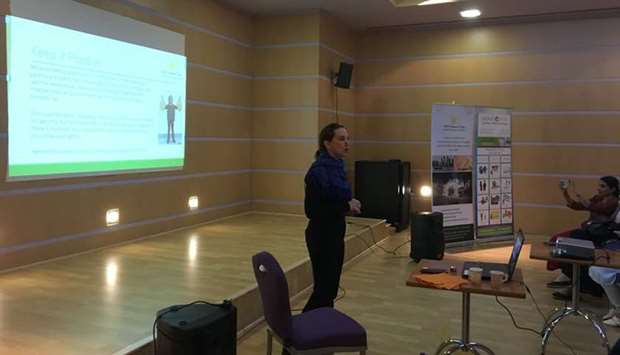Today the world marks World Autism Awareness Day in a bid to recognise and celebrate the rights of persons with autism. “This year’s observance takes place in the midst of a public health crisis unlike any other in our lifetimes – a crisis that places persons with autism at disproportionate risk as a result of the coronavirus and its impact on society,” notes the message of António Guterres, UN Secretary-General.
The message further states: “The rights of persons with autism must be taken into account in the formulation of all responses to the Covid-19 virus. On World Autism Awareness Day, let us stand together, support each other and show solidarity with persons with autism.”
It is no doubt that parents or caretakers will be facing difficult times as the regular schools and care centres for people with autism are closed. There are, however, some online platforms that are extending guidance and support to the parents on how to take care of children with Autism.
Community approached Dr Adrienne Robek, who is a Board-Certified Behavior Analyst (BCBA) and provides Applied Behavioral Analysis (ABA) services for people on autism spectrum, for her take on how autistic people can be taken care of at home.
With a doctorate in behavioral psychology from The City University of New York, Dr Robek provides an array of services that range from diagnostics to the development of ABA programmes.
Dr Robek, who developed two home-based ABA programmes in New York City providing high quality services to hundreds of families with autistic children, made two important points related to the current health crisis. “I have two messages about autism, given the current health and economic crises the world is facing. There are many parents who are desperately trying to prevent their children’s skills from regressing due to not having therapy for the foreseeable future. Although parents need to focus on helping their children, they also need to be realistic about what they can and cannot accomplish on their own, without any professional help. They need to go easy on themselves and not hold themselves to unrealistic standards. Yes, it’s important to continue focusing on their children’s skill development, but it’s equally important to refrain from holding themselves to impossibly high standards. They should do the best they can and not be too hard on themselves if everything isn’t perfect. After all, nothing about the situation the world is currently in is perfect.
“The second message is for world governments. It is important to remember that after things go back to normal; these children will need to resume their therapy. If the therapy centres fall victim to the current economic crisis, I am afraid there will be no centres for these children to go back to. Most children with Autism are not able to access their therapy via e-learning, the way typically developing children do with their academic studies. Thus, the companies that provide autism services are at a higher risk of going bankrupt while everything is shut down due to the pandemic. These companies will require help from governments in order to survive for the next few months.
Currently working as the clinical director at Child Development Center for Special Needs, Qatar, Dr Robek oversees a multi-disciplinary team of speech therapists, behaviour therapists, and occupational therapists who provide assessments and treatment to children with various developmental disabilities, including autism. “Parents can access online parent training where they can be coached by a therapist who watches the parents work with their child either in real time or on a pre-recorded video. The therapist will help with things such as behaviour management and determining which goals to focus on during the isolation period.
The author of several publications including My Child Has Autism: A Handbook for Parents and Professionals further said: “There are many activities parents can use to keep their children with Autism engaged in a productive manner. There are several new Facebook groups that have been created during the pandemic, where parents share ideas with each other. For example, one parent set up an obstacle course in her living room/dining room area, which kept her children busy for quite some time. Parents can teach their children how to perform life skills such as washing the car (many kids on the spectrum love water), teaching them how to make their own snacks and helping with meal preparation, continuing to work on teaching them how to get dressed, shower, and brush their teeth more independently, and of course continuing to work on their language skills.
“For highly active children, parents can buy a Pilates ball or a small trampoline to keep inside the house. Some of the hypermarkets might sell these items. There are also some excellent ideas for art projects on Pinterest.com”

REALISTIC: Dr Robek says that although parents need to focus on helping their children, they also need to be realistic about what they can and cannot accomplish on their own.
